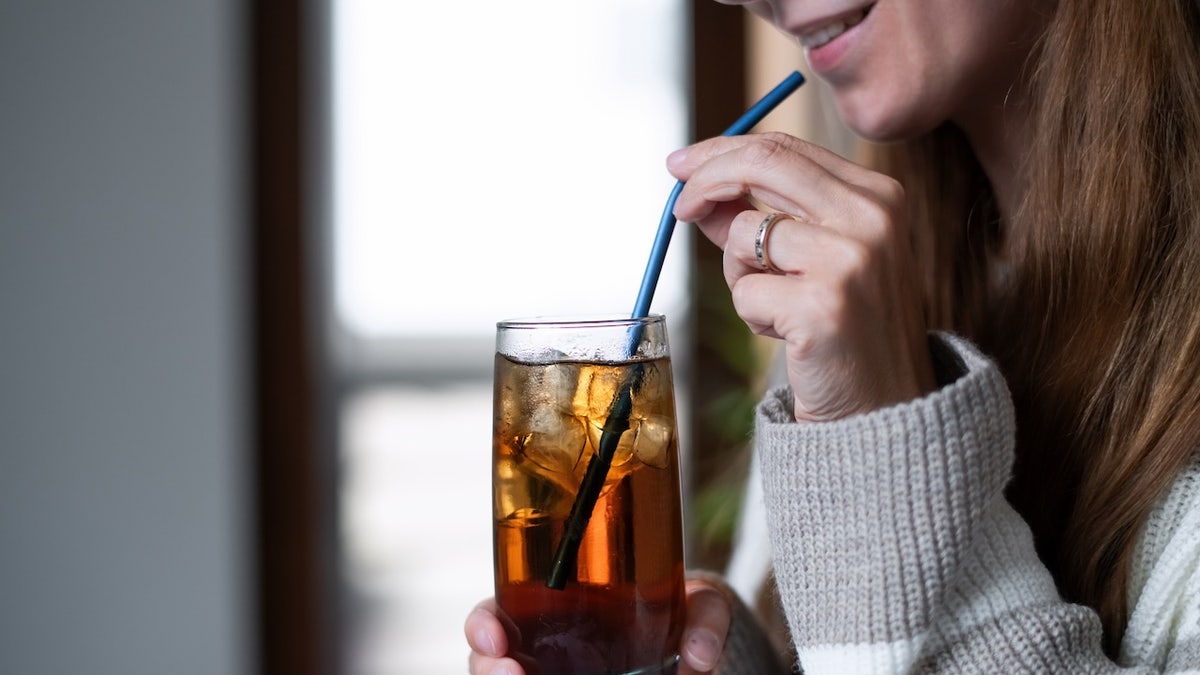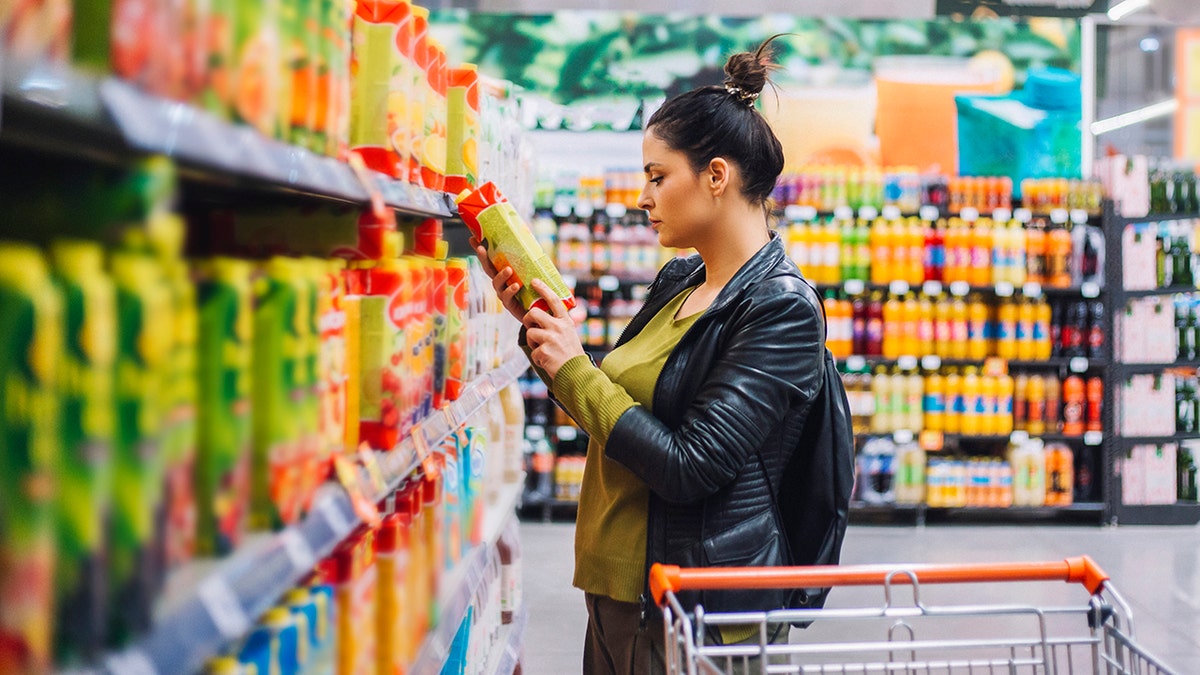Some additives in ultraprocessed foods are known to be harmful to the body – but what about when these ingredients are combined?
A new study, published in the journal PLOS Medicine, revealed that the combination of certain food additives can lead to an increased risk of dangerous health conditions, like type 2 diabetes.
French researchers from multiple universities, including the Nutritional Epidemiology Research Team at Inserm, examined the link between additive mixtures and the onset of type 2 diabetes by analyzing the health data of more than 100,000 adults in the French NutriNet-Sante cohort.
DIABETES ‘REWIRES' THE BRAIN IN SURPRISING WAY, STUDY FINDS
The research, led by Dr. Mathilde Touvier, Inserm research director and study coordinator, analyzed the cohort’s eating and drinking habits over an average 7.7-year period.

The researchers pinpointed a combination of additives often found in artificially-sweetened drinks and sodas. (iStock)
Out of five mixtures tested, two were associated with a higher incidence of type 2 diabetes, according to an Inserm press release.
The first mixture contained a variety of emulsifiers — like carrageenan, modified starch and other additives — which can be found in stocks, milky desserts, fats and sauces.
"The best diet isn’t the one with the least additives. It’s the one you can stick to long-term while supporting your health goals."
The second mixture contained sweeteners, colorings and acidifiers, which are often in artificially sweetened drinks and sodas, the release stated.
Marie Payen de la Garanderie, a PhD student at Inserm and first author of the study, noted that the study is the first to estimate exposure to food additive mixtures in a large cohort and to link them to incidence of type 2 diabetes.
DIABETES RISK LOWERED BY EATING ONE SURPRISINGLY SWEET FOOD, STUDY SUGGESTS
"The findings suggest that several emblematic additives present in many products are often consumed together, and that certain mixtures are associated with a higher risk of this disease," she wrote in a statement from the press release.
"These substances may therefore represent a modifiable risk factor, paving the way for strategies to prevent type 2 diabetes."

The study found that the combination of certain additives has been linked to a higher risk of type 2 diabetes. (iStock)
Dr. Touvier commented in a statement that further studies are necessary to "deepen the understanding of the potential synergies and antagonisms between these substances."
"This observational study alone is not sufficient to establish a causal link," she said. "However, our findings are in line with recent in-vitro experimental work suggesting possible cocktail effects."
CELEBRITY CHEF GUY FIERI'S MESSAGE TO AMERICANS: LET'S ‘EAT BETTER’ TO LIVE BETTER
"They indicate that the evaluation of additives should take into account their interactions and support public health recommendations that advise limiting non-essential food additives."
In an interview with Fox News Digital, New Jersey-based registered dietitian and diabetes specialist Erin Palinski-Wade agreed that this research revealed an association, but not a causation, between certain combinations of food additives and type 2 diabetes risk.
For more Lifestyle articles, visit foxnews.com/lifestyle
"Although more research is needed, it is a strong reminder that we can’t just zero in on one ingredient or nutrient — nutrition is about the bigger picture," she said.
"Building a diet around more whole, minimally processed foods, being mindful of ingredient lists, and staying consistent in your habits can make a real difference in lowering risk."

Balancing a diet with whole foods while being mindful of harmful ingredients can "make a real difference in lowering risk," according to a registered dietitian. (iStock)
Palinski-Wade said the new research does raise important questions about how additives can interact with the body and impact health over time.
"This study suggests that clusters of food additives may disrupt the gut microbiome and potentially reduce insulin sensitivity, especially when consumed frequently," she said.
CLICK HERE TO GET THE FOX NEWS APP
"It is important to remember, however, that this research found an association, not a direct link, and that these ingredients are considered safe on their own."
Palinski-Wade advised people to focus on adding more whole foods like fruits, vegetables and fiber-rich options to their diet, instead of "stressing" over ingredient labels.
"Balance matters, but consistency is what drives results."
"The best diet isn’t the one with the least additives," she said. "It’s the one you can stick to long-term while supporting your health goals."
According to the expert, there is not enough current research to confirm which additives, and how much of them, can increase diabetes risk — but making changes to diet, such as increasing fiber, cutting back on added sugars and limiting saturated fats, are "proven ways to improve insulin sensitivity and lower type 2 diabetes risk."

Eat more whole foods instead of "stressing" over food labels, a dietitian suggests. (iStock)
"If certain ultraprocessed foods help you cut sugar or boost fiber in a way that fits your lifestyle, that can still be a smart choice," the dietitian added.
CLICK HERE TO SIGN UP FOR OUR LIFESTYLE NEWSLETTER
"I suggest thinking of food additives the same way you think about sugar or saturated fat — a little in the context of an overall balanced diet likely won’t do harm."
For optimal results, it's best to choose an approach that supports overall health but is realistic, according to Palinski-Wade.
"At the end of the day, balance matters, but consistency is what drives results."
Angelica Stabile is a lifestyle reporter for Fox News Digital.
.png)
 German (DE)
German (DE)  English (US)
English (US)  Spanish (ES)
Spanish (ES)  French (FR)
French (FR)  Hindi (IN)
Hindi (IN)  Italian (IT)
Italian (IT)  Russian (RU)
Russian (RU)  3 days ago
6
3 days ago
6









Comments